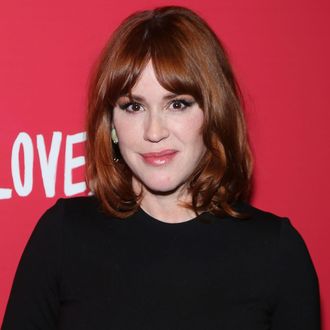
Of the many people who have written essays about the ways in which John Hughes movies have aged and fallen out of sync with culture, Molly Ringwald offers a unique perspective. In an essay for The New Yorker, the former star of The Breakfast Club, Sixteen Candles, and Pretty in Pink revisits the movies that defined her career with a critical eye. Ringwald, who has been outspoken about the sexual harassment directed at her in the past, dissected the Hughes films in light of the #MeToo movement, especially those scenes in which male characters take advantage of female ones. Examples include John looking under ClaireÔÇÖs skirt in The Breakfast Club, or when the drunk girlfriend Caroline is implied to have been traded to a boy for sex in Sixteen Candles. She also brings up the various instances of racism and homophobia in HughesÔÇÖs films, and questions how itÔÇÖs possible that they have endured, even, and sometimes especially, with the groups of people they insult.
How are we meant to feel about art that we both love and oppose? Ringwald writes. What if we are in the unusual position of having helped create it? Over the course of the essay, she interviews her former co-stars, John Hughess collaborators, and even revisits his much more explicitly racist, homophobic, and misogynistic writing for National Lampoon. She doesnt come away with a clear answer, but she documents her thought process thoughtfully. Johns movies convey the anger and fear of isolation that adolescents feel, and seeing that others might feel the same way is a balm for the trauma that teen-agers experience, she writes. Whether thats enough to make up for the impropriety of the films is hard to say  even criticizing them makes me feel like Im divesting a generation of some of its fondest memories, or being ungrateful since they helped to establish my career. And yet embracing them entirely feels hypocritical. And yet, and yet .


